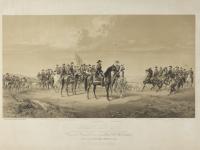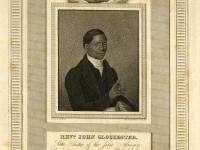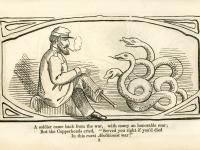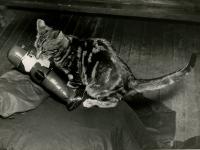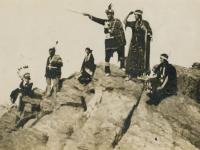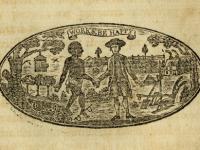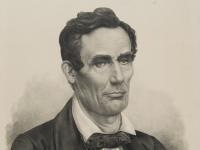History Hits
History Hits
The famous surrender during the American Civil War of the Army of Northern Virginia as commanded by General Robert E. Lee, at Appomattox Courthouse, Virginia on April 9th, 1865, to the forces of General Ulysses S. Grant, Army of the Potomac, are well-known and have been highly publicized for many years. Yet most are unaware of Pennsylvania’s connection to the event.
Many people are familiar with the contributions to early American religion by such African-Americans as Richard Allen and Absalom Jones. However, fewer are acquainted with the name of the Rev. John Gloucester and his life and contributions to the Presbyterian religion, primarily in Philadelphia, from 1807 until his death in May of 1822.
Some people assume that the magical practice of using a likeness of a person to influence his actions or destiny is a product of Haitian or West African Vodou or Voodooism. Yet such paranormal acts are not exclusively African in origin. Image Magic, or invultuation or envoutement as it is officially known, has been around for centuries in many countries. In European folk traditions, clay, wood, metal, and wax all have been used to make life-like images of individuals.
Though most people are familiar with Wild West characters such as showman Buffalo Bill Cody and sharpshooter Annie Oakley, far fewer have heard of famed theatrical promoter Gordon William Lillie, known as Pawnee Bill, and his Philadelphia connections. Lillie was born in Illinois, but he spent time living in Philadelphia and organized numerous Wild West shows in Harrisburg.
When one thinks of early Quakers or members of the Society of Friends, a common stereotype is that they were predominately pacifists, or non-aggressive in nature. Though this may be true to a large degree, like individuals of all faiths, there are those who fail to fit the prescribed behavior and instead exhibit characteristics quite distinct and independent of the norm. Born in 1799, Josiah Harlan, a Quaker from Chester County, Pennsylvania, was one such character.
As one of the last surviving signers of the Declaration of Independence, Thomas Jefferson was invited to attend and speak at the celebration of the 50th anniversary of American independence in Washington, DC. Though Jefferson failed to attend because of ailing health, he wrote a poignant letter to Washington’s mayor, Roger C. Weightman, on June 24, 1826.
The Pennsylvania Abolition Society was founded in 1775 by a group of mostly Quaker men in Philadelphia. Originally called “the Pennsylvania Society for the Relief of Free Negroes Unlawfully Held in Bondage,” the group’s primary mission at that time was to render aid to free people of color who had been wrongfully enslaved.
January marks the 150th anniversary of the Emancipation Proclamation, one of the most important documents in American history. Popular history often portrays Abraham Lincoln as the "Great Emancipator,” as most recently seen in the Stephen Spielberg film Lincoln. As a film review in the City Journal states, actor Daniel Day-Lewis “gives us Lincoln as we wish to see him.” The notion that Lincoln was an abolitionist who always wished to free African Americans from bondage is “fictory” rather than “history.”
Early 19th-century newspapers and periodicals are filled with numerous accounts of the discovery of the fossilized bones of extinct mega-fauna, such as those of the mastodons and mammoths that once roamed the prairies and forests of prehistoric America. Dinosaurs in the United States are usually associated with the western states such as Utah, Montana, and Wyoming, where large fossilized deposits have been excavated. It may be surprising that one of the most significant discoveries in paleontology happened on the east coast in New Jersey.
- ‹ previous
- 2 of 3
- next ›
About History Hits
History Hits showcases items that represent the wide range of subjects found at HSP. In this monthly blog, Dr. Daniel Rolph brings to light lesser known parts of the collection. You can also subscribe to history hits via email.

